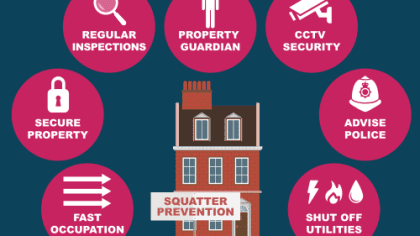Rising rents are an ongoing fact of life for millions of apartment dwellers and single-family home renters nationwide. Even if you have an ironclad 12-month lease agreement in place with your landlord or property management company, you may still eventually receive legal notice by mail or email stating that your rent is set to increase significantly at the end of your current contractual term.
As stressful and financially burdensome as this common scenario may be, it doesn’t necessarily have to spiral into an adversarial legal nightmare or prompt immediate tenant displacement if renters make the effort to proactively understand both tenant and landlord rights and responsibilities around permissible rent increases governed by local statutes. There are also proven tenant organizing strategies to attempt negotiating more gradual, moderate rent adjustments with ownership.
While rent spikes can undoubtedly burden household budgets and strain even the best landlord-tenant interpersonal relationships, avoiding immediate panic and emergency relocation under duress are key. Carefully reviewing the notice terms, validating the allowed increase percentage against prevailing ordinances, communicating concerns respectfully to ownership, and exhausting all possible compromise solutions before contemplating contentious legal action is prudent.
This guide examines regulated allowable rates, notification laws, unlawful landlord retaliation protections, and resources available to renters including tenant unions and housing rights attorneys in formulating sensible action plans when confronted by a significant rent hike notice. Keeping emotions in check and proceeding based on facts and laws regarding reasonable rent increases serve both parties best in the long run. Let’s get informed!
Can a Landlord Raise Rent for a Month-To-Month Tenant?
If a tenant resides in a unit without a formal long-term lease contract and pays rent monthly, the law treats them as a “month-to-month” tenant. In these scenarios, landlords can technically raise rents at any time with proper written notice (typically 30 days minimum).
However, frequent rent hikes on month-to-month occupants may prompt some tenants to move out on short notice, leaving units vacant. Responsible landlords balance business needs with maintaining positive relationships by keeping rate increases on month-to-month units reasonable and infrequent unless documentable operating expenses like property taxes, insurance, utilities, or capital upgrades on appliances like refrigerators, stoves and ovens necessitate.
What Legal Rights Does a Landlord Have to Raise Rent?
Landlords fundamentally have the rights to raise rents on rental units and buildings over time, within local rent control laws and state statutory restrictions. These regulations vary widely depending on your city and state jurisdiction, but generally aim to prevent excessive, retaliatory, or arbitrarily discriminatory rent spikes while allowing landlords to receive reasonable returns to cover escalating rental property costs like repairs, maintenance and utilities.
Common regulatory limits often include defined caps on:
- The maximum percentage amount by which rent can be raised during each 12-month lease term
- The absolute number or frequency of times rent can be increased during an existing tenant’s continuous occupancy
In particular, landlords may justify rent increases by documenting major building repairs and systems upgrades needed to properly maintain units over time including:
Water & Plumbing – Replacing corroded pipes, addressing water leaks, mold remediation and related flooding damage can prove costly. Ensuring safe water quality may require systems investments.
HVAC & Energy – Upgrading aging air conditioning and heating units to more efficient models as older appliances break down helps cut tenant electric bills over time. However, these improvements are expensive.
Trash & Pest Control – Proactive dumpster and recycling maintenance along with periodic pest control spraying keeps units sanitary. Costs often rise as buildings age.
Electrical – Improving wiring, expanding panel capacity and meeting codes to support modern device usage requires expertise. Lighting upgrades also consume materials and labor.
Appliances – As stoves, refrigerators and ovens wear out across rental units, replacing these expensive items maintains comfortable living conditions for tenants.
Prevention & Inspections – Completing rigorous preventative maintenance inspection checklists on units annually helps identify issues early before they worsen into catastrophic failures. Inspections have costs too though.
Responsible landlords keep detailed maintenance logs and inspection records that tenants have a right to review when assessing the justification for significant rent increases over time. Some intermittent rent raises may prove reasonable if directly linked to documented unit upgrades and capital investments.
What Specific Factors May Contribute to Rent Increases?
Myriad issues often motivate landlords to raise the rent prices on residential units over the course of a tenancy:
Accelerating Operating Expenses
Fixed costs like property taxes, building insurance premiums, maintenance repairs and utilities inevitably rise each year. Most landlords will pass a proportional amount of any major increased operating expenses directly onto renters in order to preserve their profit margins. Late penalty fees for overdue rent payments may get tacked on too.
Property Upgrades & Improvements
Major building-wide upgrades like full-scale renovations, capital improvement projects, or installing new appliances in individual units allow landlords to substantially raise rents. These increases purportedly help pay for upgrading things like stoves, refrigerators, heating and air conditioning systems over time as they wear out.
Ongoing Maintenance & Repair Costs
Replacing broken appliances, addressing leaks, updating fixtures, pest control and similar unit repair expenses get passed through in periodic rent increases. Ensure these costs are legitimate first.
Unlawful Reasons
Though illegal, some unscrupulous landlords still improperly raise rents based on demographics like tenant race, gender, religion, family status or other reasons prohibited under fair housing laws. Such rental discrimination persists through pretext, disparate impact and coercion.
What Tenant Protections Exist Against Rent Gouging?
While federal regulations prohibit housing discrimination, state statutes and local ordinances regulate permissible rent increases:
Limits on Frequency
Local laws may prohibit landlords raising rent more than once per 12-month lease term for existing tenants without substantive upgrades or documented improvements.
“Fair Return” or “Reasonable Rate” Formulas
A growing minority of state and municipal laws now require basing any rent increases on verifiable indexes like consumer inflation, documented operating expenses or prevailing market rents rather than arbitrary dollar amounts at the landlord’s sole discretion.
Right to Advance Written Notice
Most states have statutes mandating landlords provide tenants 30-90+ days advance written notice before imposing any rent increase taking effect when an existing lease term expires.
What to Do When Your Landlord Wrongfully Raises Rent?
If a significant rent increase notice violates local statutes on permissible percentage amounts or allowable frequency, several recourses exist. Gather documentation on nearby comparable rents and actual landlord operating expenses to assess validity. Attempting transparent, written negotiation of a fair compromise rate based on evidence is prudent initially.
If unreasonable increases continue being asserted illegally after respectful attempts at mediation, formally contacting local housing authorities to report statutory violations may compel compliance. Consulting housing rights attorneys and organizations for assistance proves essential if retaliation like lease non-renewal or harassment occurs. Hopefully lawful cooperation prevails from both parties when properly informed.
Key Housing Rights to Understand as a Tenant
In addition to capping allowable rent increases, tenants have other important legal rights relating to fair housing:
Right to Habitability – Federal and state laws mandate landlords maintain safe, sanitary, and structurally sound living spaces compliant with building codes. Specifically, landlords must legally maintain premises meeting basic structural, sanitary and mechanical standards through diligent upkeep tasks like providing consistent heat, hot water, properly functioning central air conditioner system or window units, refrigerator in good working order, gas stove and oven without gas leaks. Rental units must remain fully fit for human occupancy without undue physical hazards, excessive mold/mildew or insect/rodent infestation to meet statutory minimum habitability standards at all times. State and city housing authorities often enforce these requirements through fines and injunctions. No tenant should endure legally uninhabitable living conditions or units not reasonably compliant with applicable housing quality standards.
Limits on Security Deposit
Local laws prohibit charging security deposits over 1-2 months’ rent typically. Rent hikes pushing deposits over maximums may be disputed.
Right to Request Repairs & Maintenance
Leases obligate landlords to maintain safe, habitable conditions. Tenants can request entry for repairs if issues emerge like appliance breakdowns. Document requests in writing.
Protection Against Retaliation
Landlords cannot retaliate through harassment or eviction attempts for tenants exercising legal rights like requesting repairs or disputing rent hikes.
Arm yourself with knowledge of all applicable housing rights and codes in your city to resolve housing condition issues or disputes over allowable rents.
Key Takeaways for Tenants
Responsible renters should put forth good faith efforts to transparently communicate, negotiate, reasonably compromise where possible and exhaust every administrative resolution option before pursuing litigation against landlords.
However, unlawful housing practices like arbitrarily disproportionate rent increases without justification, chronic failure to maintain safe living conditions or direct retaliation against tenants who assert legal rights do sometimes require accessing public legal resources as a last resort.
Document everything in writing, know your rights inside and out, but also give the landlord a fair chance to make things right before taking claims before a judge or housing authority official as that process helps no one. Mutual agreement through open discussion of issues almost always yields better outcomes than lawsuits for both parties.
Seeking the Ideal NYC Room?
Imagine not just an ordinary room, but a lively community waiting to be called ‘home’. SharedEasy Coliving welcomes you to a new way of living! Discover our stylish, fully-equipped rooms, designed to complement your dynamic New York life.
Make Your Move Now:
Tap “Get Offer” or dial +1 929-575-4767 to explore how SharedEasy can elevate your living experience. Enjoy the convenience of flexible leases, inclusive amenities, and rooms prepped for immediate move-in. Your vibrant NYC community is calling. Become part of the SharedEasy family today!





